Bulgaria Digital Nomad Visa (Bulgaria Freelance Visa)
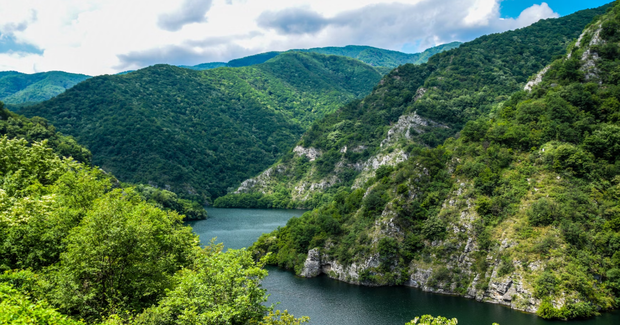
Quick Visa Facts
Visa length 1 year
Possible to extend? Yes
Who can apply? Anyone older than 18
Minimum Income Requirements Equivalent to the minimum monthly salary in Bulgaria
Time for visa applications 35 business days
Want to know if you can apply?
Complete a visa quiz and see if you qualify!
Bulgaria Digital Nomad Visa Overview
More people are interested in traveling to Bulgaria as digital nomads in recent years, which creates a question: Is there a Bulgarian digital nomad visa you could apply for?
In simple terms, there is no digital nomad visa in Bulgaria, but there are some options you could use as a digital nomad if you want to enjoy the vibrant capital of Sofia or the popular seaside town of Varna as a digital nomad.
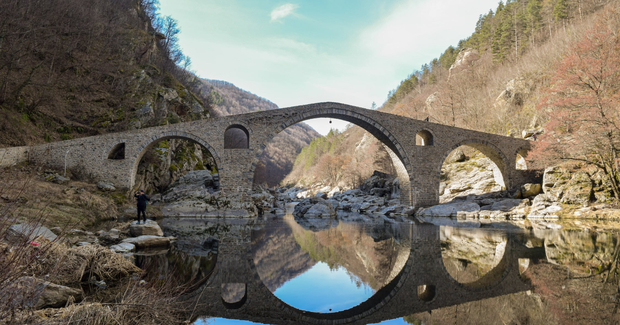
When it comes to a digital nomad visa for Bulgaria the most similar equivalent is to get a Bulgaria freelance permit and then apply for a type D visa which allows you to stay in the country for a year and can be extended.
The freelance permit must be approved by the Employment Agency, which is the official office for employment in Bulgaria.

Some of the things you need so that you can get approved are a B1 level of Bulgarian language knowledge, a detailed plan of what you are going to do in Bulgaria and who are you going to work for, and explain how that will affect the Bulgarian economy. You must be working for at least one company in Bulgaria as a freelancer to get approved.
After getting approved for a freelance permit you must apply for a type D visa in the Bulgarian embassy or consulate. You will need a visa application form, passport, copies of passport, passport size photo, and two copies of the original documentation supporting the application for a long-stay visa.

Other requirements include proof of health insurance, proof of housing in Bulgaria, and proof of sufficient funds. The proof of funds must be at least a minimum monthly wage or pension according to Bulgarian law.
Once you get a type D visa your next step is to obtain a residential permit when you enter the country, which equals an ID card and is issued by Bulgarian authorities.
Those who do not want to go through the whole process can travel to Bulgaria on a tourist visa. If you are a Schengen visa holder you can stay in Bulgaria for 90 days in every 180 days. Also, if you are on the list of countries that do not require a visa for Bulgaria, the same applies to you, and you can enter the country twice a year for 90 days. The European Parliament has stated that Bulgaria is expected to join the Schengen area by the conclusion of 2023.
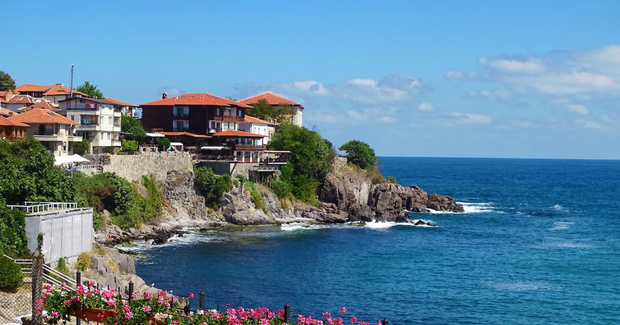
For EU residents it is a little different because they can also come to Bulgaria twice a year for three months, but if they want to stay in Bulgaria permanently they can get a residential permit easily and stay as long as they want.
Americans, however, must obtain a type D visa if they want to stay longer than 90 days at a time.
Type D visa facts:
Anyone older than 18 can apply.
You can get approved for 6 months or one year, depending on the type of work you will perform.
Visa can be extended.
You are allowed multiple entries in this visa.
You must apply to a country that is your permanent place of residence.
Application is submitted through the Bulgarian embassy or consulate.
It can take up to 35 business days for the answer about your visa status when you apply.
If you want to travel through Europe as a digital nomad, you should know that there are some other countries nearby offering digital nomad visas.
Countries that digital nomads love and are close to Bulgaria are

Our Community Drives it all
Join the community of remoters!
Who Can Apply for the Digital Nomad Visa for Bulgaria

There are no restrictions on people who can apply for a digital nomad visa for Bulgaria, but they must be older than 18 and have at least two years of experience in a field they will be working in during their stay in Bulgaria.
The field of work may vary but these freelancers usually work in the IT industry or have some other remote job.
If You Are a United States Citizen
US citizens can enter Bulgaria without a visa and stay up to 90 days every 180 days, but if they want to settle for longer or even permanently, they need to apply for a type D visa.
This visa will allow them to work and live in Bulgaria for up to a year, and extend that stay multiple times. The most recent information about visa requirements for US citizens you will find on the Bulgaria embassy website.
If You Are An EU Citizen
EU citizens can go to Bulgaria without any restrictions because Bulgaria is also part of the EU. If they are planning to stay longer than 90 days, they must register with the Migration office and get their Bulgarian residential permit.
There are no particular limitations on your ability to operate remotely or independently in Bulgaria as a digital nomad. You are not necessary to submit a lengthy application or receive a work permit. As long as your work-related actions are legitimate and by local laws, you may engage in them.
If You Are a US Green Card Holder
US Green Card Holders can come from any country in the world, so if they do not have a US passport yet, but their own country’s passport, the regulations for them may be different.
Here is the list of countries that are not part of the EU and you can see if you need a visa for Bulgaria or not. Other than that, you may apply for a type D visa the same as anyone else.
If You Are a Citizen of Canada, Australia, or New Zealand
Citizens of Canada, Australia, and New Zealand do not need visas for short tourist stays in Bulgaria. However, if they want to stay long term they must apply for a type D visa, the same as US citizens.
If You Reside in Any Other Country
Depending on your country of origin, you might need a visa for visiting Bulgaria. Check eligibility here. If you are planning on staying longer as a digital nomad, you must check your local Bulgarian embassy website and apply for a type D visa.
Bulgaria Digital Nomad Visa Requirements
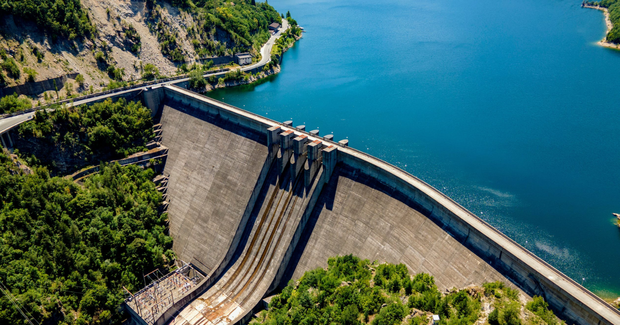
Since there is no digital nomad visa for Bulgaria as such, the process may look a little bit difficult, but it doesn’t take much time. If you see yourself as a freelancer in Bulgaria then it is worth spending a couple of months planning our trips and gathering all the necessary documents.
Document Requirements for Paying Taxes in Bulgaria
One of the reasons many nomads migrate to Bulgaria is the interesting tax regime the country offers. Bulgaria applies a flat tax rate of 10% both for individuals and for companies.
Of course, depending on your setup, you might need to account for other taxes as well (e.g., social contributions for individuals and withholding tax for companies), but the flat tax is definitely a good start.
You can always find the most recent information about taxes on the official website of the Bulgarian National Revenue Agency.
Here is the list of documents you need to submit for taxes:
Provide your valid passport or other identification documents to establish your identity.
Obtain a Bulgarian Tax Identification Number (TIN) from the Bulgarian National Revenue Agency.
Prepare documents to demonstrate your income earned during your stay in Bulgaria.
Maintain records of your business-related expenses incurred while working in Bulgaria.
If you are considered a tax resident in Bulgaria, provide documentation to establish your residency status.
Fill out and submit the appropriate tax forms, such as the annual personal income tax return, along with the supporting documents mentioned above.
If required, provide documentation of your social security contributions made in Bulgaria, if applicable.
Consider consulting with an accountant or tax advisor familiar with Bulgarian tax regulations to ensure compliance with local tax laws and to assist with the preparation and submission of your tax documents.
Bulgaria Bank Account Requirements
In Bulgaria, foreigners can open a bank account. You’ll need to present your passport, residency permission, address proof, and other required paperwork. You can also be asked to present evidence of your financial standing, such as your income and assets.
Proof of Financial Self-Sufficiency
Proof of funds is required when applying for a digital nomad visa, and it can be a bank statement, employment contract, savings, investments, income from freelancing, sponsorships, etc. These documents must be from official websites or original contracts so that they are considered valid.
Proof of Accommodation
Proof of accommodation is a contract between you and your landlord. This contract must contain your name and address so you can register your address when you apply for a residency permit.
Full Health Insurance
When you are traveling to Bulgaria as a digital nomad you must provide proof of health insurance that covers all emergency procedures and hospital care for the length of your trip through the EU. This policy must be at least 30,000 EUR. Here you can find different health insurance policies you may want to consider for your trip to Bulgaria.
Clean Criminal Record
A clean criminal record check is usually performed by the local police in your city. Depending on the country you are coming from this may be easy or harder to obtain, and it doesn’t take long to get. Contact your local law enforcement and ask about the procedure. In the US you can get an FBI background check for visa purposes.
Minimum Stay Requirement
There is no minimum stay requirement for a type D visa, but you must respect your visa length and not stay longer than allowed in Bulgaria. Also, pay attention to the date by which you have to enter Bulgaria for the first time. This visa is multiple entry, so you can leave Bulgaria at any time for as long as you want while your visa is still valid.

Our Community Drives it all
Join the community of remoters!
How to Apply for the Bulgaria Digital Nomad Visa – Step-By-Step Instructions

To obtain a digital nomad visa for Bulgaria you must take many steps, starting with getting a freelance permit, then applying for a type D visa, and then applying for a residence permit.
Step 1 – Apply for a Freelance Permit
You must first create a thorough plan outlining your freelance work activities if you want to work as a freelancer in Bulgaria. This must be given to the Employment Agency together with documentation of your training and credentials.
You must present a Level B1 certificate attesting to your language proficiency in Bulgarian. You must also demonstrate that you have at least two years of relevant past job experience and that you have the financial means to support your venture to be granted a work permit. Remember that you must resubmit your application for a self-employed worker’s permit every year and include this information.
Step 2 – Acquire All the Necessary Documents for Visa Application
The first step is to gather all the necessary documentation required for the visa application. This may include proof of employment or freelance work, financial statements, health insurance coverage, and other supporting documents.
Here is the document you must submit:
Passport.
Copies of the passport pages with the personal information and the visas, including Schengen or US Green Card.
Recent passport-size photo.
Original documents, together with two copies of each, attest to the applicant’s eligibility for a long-stay visa.
Proof of the purpose of your trip.
A medical insurance policy that is valid throughout the whole trip and is valid in all EU member states, covering all costs associated with repatriation as well as urgent medical care and emergency hospital treatment for the duration of the stay specified in the visa. The insurance sum cannot be less than 30,000 EUR.
Proof of funds.
Proof of accommodation.
A background check (proof of clean criminal record).
Step 3 – Submit Your Documents
Once you have all documents gathered and checked it is time to submit them to the embassy. Check out the Bulgarian embassy website for working hours and schedule a meeting if necessary so you can submit your application.
Step 4 – Waiting for Application Processing
It typically takes several weeks to a few months for the authorities to review and process the application. During this time, they may conduct background checks and verify the information provided.
Step 5 – Visa Approval and Issuance
If your application is approved, you will receive notification from the Bulgarian embassy or consulate. You may need to visit the embassy or consulate to provide additional information, such as biometric data.
Step 6 – Enter Bulgaria
Once your type D visa is approved, travel to Bulgaria and enter the country within the designated timeframe specified by the visa.
Step 7 – Register Your Arrival
Within five days of your arrival in Bulgaria, you must register your presence at the local Migration Office or police station. Provide your passport, visa, and any other requested documents.
Step 8 – Find Accommodation
Secure long-term accommodation in Bulgaria, as you will need to provide proof of address when applying for a residence permit.
Step 9 – Gather Required Documents
Prepare the necessary documents for the residence permit application. These may include your passport, visa, registration certificate, proof of accommodation, proof of financial means, health insurance, and any additional supporting documents required by the authorities.
Step 10 – Submit Residence Permit Application
Visit the local Migration Office or a relevant government agency to submit your residence permit application. Complete the application form, attach the required documents, and pay the applicable fees.
Step 11 – Attend Biometric Appointment
Once your application is accepted, you may be required to schedule a biometric appointment to provide your fingerprints and have your photo taken.
Step 12 – Wait for Processing
The processing time for the residence permit application can vary. It may take several weeks to a few months for the authorities to review and process your application.
Step 13 – Collect Residence Permit
If your application is approved, you will be notified to collect your residence permit from the Migration Office or designated office. The residence permit will serve as proof of your legal residence in Bulgaria.
Timeline for Applying for Bulgaria Digital Nomad Visa
When you gather all the necessary documents you must make an appointment in the Bulgarian embassy or consulate in your country of origin. Depending on the efficiency of the embassy the time of waiting for the decision about your visa can take anywhere between a few days and over a month.
According to the Embassy of Bulgaria in Washington D.C., it should take up to 35 business days for their decision. And if your visa gets approved you can travel to Bulgaria already the next day, or any time in the next 180 days. But please check your visa conditions because this timeframe may be different for you.
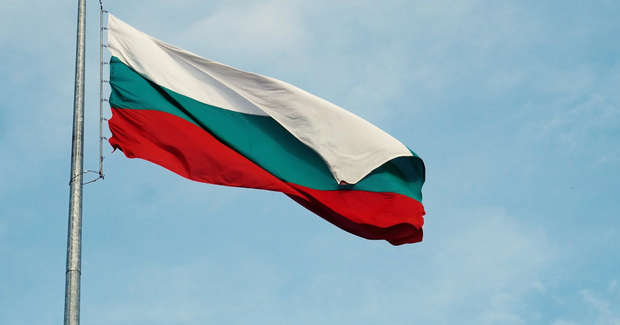
It is essential to start the application process well in advance to give yourself enough time to gather the necessary paperwork, account for anticipated delays, and handle unforeseen events.
It’s also advised to speak with the Bulgarian embassy or consulate and think about getting professional counsel to make sure you comprehend the precise specifications and deadline for requesting the Digital Nomad Visa in Bulgaria.
How Much Does Apply for a Digital Nomad Visa for Bulgaria Cost?
The total cost of getting a digital nomad visa for Bulgaria may vary depending on which country you are coming from and if you use lawyers or if you are doing everything by yourself. The visa application fee for a type D visa is 118 USD for six-month validity or 236 USD for 1-year validity.
Here are some potential costs to consider:
Visa application fee varies by country, but for US citizens it is 118 USD for six-month validity or 236 USD for 1-year validity.
Legal and administrative services may come with associated costs, including fees for assistance with document preparation, application review, and consultation.
Depending on the requirements of the Bulgarian authorities, you may need to have certain documents translated into Bulgarian and notarized. The cost of translation and notarization services can vary depending on the number of documents and the language involved.
As part of the application process, you may need to provide proof of health insurance coverage for your stay in Bulgaria, which cost can vary based on factors such as your age, coverage type, and the duration of your stay.
Taxes for Bulgaria Digital Nomad Visa
Bulgaria offers a special tax regime for individuals who qualify for the Bulgaria freelance visa, which we consider Bulgaria’s digital nomad visa. Anyone who obtains a type D visa for Bulgaria is subject to a flat income tax rate of 10% on their worldwide income.
This means that regardless of the source of income, whether it’s derived from work performed within or outside Bulgaria, the tax rate remains at 10%. This flat tax rate is significantly lower compared to the regular progressive income tax rates applied to Bulgarian residents.
Bulgaria Digital Nomad Visa Denial
There are various possible reasons why someone would be denied a visa. It can be because you did not apply correctly or didn’t fill out the application form correctly. Maybe your documents were not all there or something was expired.
If you get denied a Bulgarian type D visa you can reply when you have everything checked and sorted out. But if some time has passed before your application, make sure to check the official website again for possible changes to policies.
Living in Bulgaria as a Digital Nomad
Capital Sofia
Form of Government Parliamentary republic
Population 6.878 million
Climate Diverse climate with all four seasons.
Language Bulgarian
Currency Bulgarian Lev (BGN)

3 people in Bulgaria!
Join the community of remoters!
Bulgaria is a fantastic destination for digital nomads because of its affordable cost of living, stunning nature, and welcoming locals. Different parts of the country have different climate types, including continental, Mediterranean, and mountain climates. If you haven’t been to Eastern European countries by now, Bulgaria is a great place to start. You will get to experience local culture, tasty cuisine, buzzing nightlife, and amazing coworking spaces with a great community.
As a digital nomad in Bulgaria, you can expect to find many like-minded people in all bigger cities. You will be surprised by the affordability of everything compared to Western Europe or the US.
Also, it all comes coated in safety and security and with a welcoming community. If you are scared of the paperwork and finding the apartment, you should consider hiring professional services to help you out.
Attractions and Best Places to Visit

Bulgaria has an interesting and rich history with a lot of historic attractions remaining. From monasteries to old towns and fortresses, there is something for everyone to see while traveling through Bulgaria.
Belogradchik Rocks and Fortress
This natural phenomenon consists of strangely shaped rock formations that have captivated visitors for centuries. Amongst these rocks, the Belogradchik Fortress stands as a testament to the region’s history, providing a fascinating blend of nature and architecture.
Nessebar Old Town
Situated on a peninsula on the Black Sea coast, Nessebar’s Old Town is a UNESCO World Heritage site that captures the essence of ancient and medieval Bulgaria. Here you will see beautifully preserved churches, narrow cobblestone streets, and traditional Bulgarian houses, creating a charming and romantic atmosphere.
Seven Rila Lakes
Nestled in the Rila Mountains, the Seven Rila Lakes are a natural wonder and a popular destination for hiking enthusiasts. Each lake has its unique beauty, surrounded by stunning alpine scenery and offering breathtaking views to those who venture on the hiking trails.
Sofia’s Alexander Nevsky Cathedral
A symbol of the Bulgarian capital, Alexander Nevsky Cathedral is a magnificent Orthodox cathedral that impresses with its golden domes. Its stunning interior features beautiful mosaics and iconography, attracting visitors from all over the world.
Rila Monastery
A UNESCO World Heritage site, Rila Monastery is a breathtaking architectural gem nestled in the Rila Mountains. It showcases remarkable frescoes, intricate wood carvings, and a peaceful ambiance, making it one of Bulgaria’s most iconic and revered cultural and religious landmarks.
Digital Nomad Hotspots
The infrastructure, diversity, coworking spaces, expat groups, and lifestyle are best found in the four largest cities, Sofia, Plovdiv, Varna, Bansko, Burgas, and Veliko Tarnovo.
)
Sofia
City in Bulgaria
Sofia, the capital and largest city of Bulgaria, provides digital nomads with a vibrant and dynamic atmosphere. Its infrastructure is well-developed and includes co-working areas, cafes with dependable internet, and a variety of lodging choices. In addition, Sofia has a thriving cultural scene, parks, a low cost of living, and convenient transportation options.
)
Plovdiv
City in Bulgaria
The second-largest city in Bulgaria, Plovdiv, is renowned for its historical allure, creative scene, and relaxed vibe. It provides a blend of contemporary conveniences and maintained historic architecture. Coworking spaces, cafes, and a lively cultural scene are all expanding in Plovdiv. It's a desirable alternative for digital nomads seeking a more laid-back and imaginative setting.
)
Varna
City in Bulgaria
Varna, a city by the Black Sea with stunning beaches and a bustling atmosphere, is a coastal community. With co-working spaces, cafes, and a lovely climate, it provides an excellent combination of work and play. The coastal setting of Varna offers an opportunity for leisurely outdoor pursuits.
)
Bansko
City in Bulgaria
Bansko is a well-liked digital nomads hub, particularly among those who appreciate outdoor activities and a mountainous backdrop. When compared to larger cities like Sofia, Bansko has a lower cost of living. Budget-conscious digital nomads may find it appealing because of the availability of relatively affordable lodging, dining, and entertainment alternatives.
)
Burgas
City in Bulgaria
Burgas, a seaside city on the Black Sea known for its thriving summer tourism, is becoming more and more well-liked among digital nomads. It provides a range of contemporary conveniences, a low cost of living, and a developing coworking community. Burgas boasts a comfortable temperature, lovely beaches, and a relaxed way of life.
)
Veliko Tarnovo
City in Bulgaria
Veliko Tarnovo, a lovely city recognized for its historical significance and picturesque environment, is located in the center of Bulgaria. It offers a more relaxed pace of life, a lesser cost of living, and a welcoming neighborhood. Although the infrastructure for digital nomads in Veliko Tarnovo may not be as developed as in bigger cities, the town offers a distinctive and peaceful setting.
Benefits of Working in Bulgaria as a Digital Nomad
Bulgaria is a fantastic country for digital nomads, even for those without experience in traveling internationally. It is a place where you will easily find your way around, where most young people speak English, and where you will find amazing inexpensive places to work from.
Cost of Living
Living in a country where you need approximately 1000 USD per month for both rent and living expenses is amazing. You do not have to stress too much about utility bills and you can afford many things that in your country of origin you would maybe have to think twice about before purchasing.
Sofia and other larger cities are more expensive, but if you decide to explore the countryside, you can lower your cost of living even more and experience some amazing benefits that country living is offering, from access to nature to meeting amazing locals.
Tax Benefits
The country's flat tax system is one of the reasons foreigners and digital nomads chose to base themselves in Bulgaria. The flat tax idea states that everyone pays the same percentage, in contrast to progressive tax systems. Bulgaria's percentage is substantially lower at 10%.
Coworking Spaces 👩🏻💻
Coworking spaces have multiplied in recent years in response to the demands of regional and global digital nomads. They typically act as start-up incubators and provide remote jobs for independent contractors and digital nomads. They can be found across the region's cities like Sofia, Bansko, Varna, and Plovdiv.
Safety
Bulgaria is one of the safest countries in Europe for foreigners. Although Bulgaria is considered to be among the most corrupt countries in Europe, it doesn’t affect tourism and travelers. You can be living and traveling through the country with no problems or safety concerns, but always be aware of your surroundings like anywhere else in the world.
Cost of Living
The cost of living in Bulgaria according to Numbeo is very affordable for many Westerners. The average monthly salary in Bulgaria is 1,466.40 BGN which is approximately 800 USD or 9600 USD per year, while a family of four needs about 2000 USD per month for living costs without rent.
This means that for Bulgarians their own country can be expensive, but for digital nomads with higher salaries, it is one of the best destinations in Europe.
Average rent per month in Sofia:
1 bedroom apartment in the city center 476.26 USD
1 bedroom apartment outside of the city center 363.21 USD
3 bedroom apartment in the city center 858.62 USD
3 bedroom apartment outside of the city center 588.74 USD
Average market prices:
Milk 1.84 USD
Fresh bread 1.06 USD
Rice 2.03 USD
Eggs 3.42 USD
Banana 1.78 USD
Tomato 2.35 USD
Domestic beer 0.92 USD
Restaurants:
Inexpensive restaurant per person 10.97 USD
McDonalds 6.58 USD
Utilities:
Basic utilities for 3 bedroom apartment 134.47 USD
Internet unlimited 13.22 USD
The cost of living in Bulgaria is generally lower compared to the United States. However, it’s important to note that the cost of living can vary depending on the specific cities or regions within each country.
Here is the comparison:
Housing costs in Bulgaria, including rent and property prices, are generally more affordable compared to major cities in the United States.
The cost of food and groceries in Bulgaria is typically lower than in the United States. Local produce, basic food items, and dining out tend to be more affordable in Bulgaria.
Public transportation costs, including buses, trams, and the metro, are generally cheaper in Bulgaria compared to the United States.
Healthcare costs in Bulgaria are generally lower than in the United States. Bulgaria has a public healthcare system, and private healthcare options are also available at lower prices compared to the US.
If you have dependents and are considering education expenses, tuition fees in Bulgaria are generally lower compared to the United States, including both public and private schools and universities.
The cost of consumer goods, entertainment, and lifestyle choices can vary. Electronics and imported products may be more expensive in Bulgaria due to import taxes and fees.
Digital Nomad Essentials
Internet (speed) 67 Mbps fixed internet, and 103 Mbps mobile internet
Time Zone Eastern European Summer Time (GMT+3)
Socket Type Types C and F
How to get a phone (SIM card) + Calling Code – Go to mobile operator shops to get a phone and number together with a mobile plan. The most popular ones are A1 Bulgaria, Telenor Bulgaria, and Vivacom. Bulgaria’s calling code is +359.
Accommodations – Most landlords in Bulgaria expect to sign a year-long contract, so finding apartments for shorter periods can be difficult. If you are staying in Bulgaria for only a few months it is better to check out monthly stays of amazing digital nomad-friendly apartments on our digital nomad apartments section.
All you have to do is create a profile and enter your information. Your next step is to do a search for the location you are interested in and to choose the right apartment. When you find a perfect place for yourself you will send a request to a landlord who has 24 hours to approve it. The best part is that you can cancel a reservation for free up to 30 days before your trip.
Check out apartments available in Bulgaria right now here.
If You Decide to Go to Bulgaria
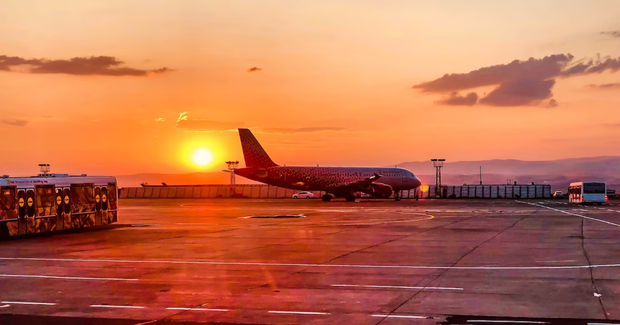
Bulgaria is on the radar of many digital nomads and for all the best reasons. It is an amazing country with a rich history and beautiful nature, that is at the same time safe and affordable. It has great infrastructure and a growing community of digital nomads, while locals are open and accepting of foreigners. Bulgaria is the top pick if you want to explore Eastern Europe.
FAQs About Bulgaria Digital Nomad Visa
Does Bulgaria Have a Digital Nomad Visa?
No, but it has a Freelance permit which can be used to obtain a type D visa. This visa is long-term and allows you to stay in Bulgaria for a year
What Is the Length of the Bulgaria Digital Nomad Visa?
Bulgaria's digital nomad visa is one year long with the possibility to be extended. The shortest type D visa is issued usually for 6 months.
Is It Possible to Extend the Bulgaria Digital Nomad Visa?
Yes, as long as you are still able to obtain the same terms and documents.
Will You Get a Refund for Visa Application if You Are Denied?
No, the fee you pay is for visa processing and will not be refunded.
How Much Money Do You Need per Month in Bulgaria?
According to Numbeo, a single person needs just a little over 500 EUR per month to live in Bulgaria. This is without rent, which can cost from 250 to 500 EUR per month, depending on location.
Is there a Digital Nomad Community in Bulgaria?
Bulgaria's digital nomad community is growing and it is especially developed in cities like Sofia, Plovdiv, and Varna. They offer many amazing coworking spaces and affordable accommodations.
What Bulgaria Neighboring Countries Issue Visas for Digital Nomads?
Most of Bulgaria’s neighboring countries have some sort of digital nomad visa and are very popular in the digital nomad community. These are Serbia, Turkey, Greece, and Romania.
Author